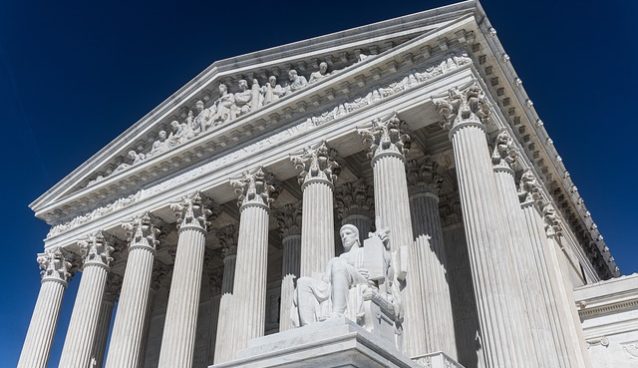Shorthanded Supreme Court May Still Issue Blockbuster Rulings

The U.S. Supreme Court always save the best for last, and this term is no exception. While the vacancy on the Court dominated the headlines, the justices still considered several important cases. Issues still left to be decided in the coming weeks include the extraterritorial reach of the Fourth Amendment and First Amendment protections for offensive trademarks.
Over the past several years, the Court has issued several blockbuster decisions on issues ranging from same-sex marriage to the Affordable Care Act. The Court’s final opinions of the current term may not generate the same fanfare, but they are still significant.
The difficult cases left to be decided include Bank of America v. City of Miami, which involves the scope of the Fair Housing Act (FHA). The justices must decide if the city has standing to bring a lawsuit under the FHA alleging that the banks engaged in predatory lending practices that targeted African-American and Latino borrowers for higher-risk loans and subsequently caused financial harm to the city in the form of widespread foreclosures.
Trinity Lutheran Church v. Comer is one of the closely-watched cases in which Justice Neil Gorsuch did participate. The First Amendment case involves whether the state of Missouri violated the U.S. Constitution when it denied a church’s application for Missouri’s Scrap Tire Grant Program so that it could resurface its playground. The state rejected the application, citing a provision in the Missouri state constitution that states “no money shall ever be taken from the treasury, directly or indirectly, in any of any church, sect, or denomination of religion.” The question before the justices is whether the exclusion of churches from an otherwise neutral and secular aid program violates the Free Exercise and Equal Protection Clauses when the state has no valid Establishment Clause concern.
Another high-profile case, Hernandez v. Mesa, involves the cross-border shooting of a Mexican teen by a U.S. Border Patrol agent. The key issue before the Court is the extent of the extraterritorial application of the Fourth Amendment’s prohibition on unjustified deadly force. The Fifth Circuit Court of Appeals held that Hernandez was not afforded Fourth Amendment protection because he was a Mexican citizen with no “significant voluntary connection” to the United States.
In a case dominated by intellectual property disputes, the justices have yet to resolve TC Heartland v. Kraft Foods, which involves the proper venue for patent lawsuits. The basic question is whether corporate patent defendants are subject to suit in any district in which they do business, as the Federal Circuit Court of Appeals has held, or whether a 1957 Supreme Court decision holding they can be sued only the state in which they are incorporated remains binding precedent.
Lee v. Tam also remains undecided. The closely-watched trademark case will decide whether the Lanham Act’s prohibition of registering disparaging marks with the U.S. Patent and Trademark Office is unconstitutional under the First Amendment. Finally, the business community will be watching Microsoft v. Baker. The class-action suit challenges a litigation strategy used by plaintiffs to obtain appellate review of class certification denials. The specific question before the justices is whether a federal court of appeals has jurisdiction to review an order denying class certification after the named plaintiffs voluntarily dismiss their claims with prejudice.
